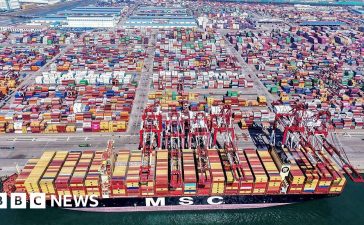Britain will be vulnerable to gas shortages and high energy prices next winter because of the failure of the government and Centrica to reach agreement on expanding the UK’s largest gas storage site, energy experts and MPs have warned.
Centrica, which owns British Gas, partly reopened the Rough gas storage site off the Yorkshire coast, at the government’s request last October — five years after it was closed to new injections. But the site is operating at only a fifth of its previous capacity.
The company had been lobbying the government for consumer-funded minimum revenue guarantees that it says it needs if it is to invest the £150mn required to double Rough’s capacity to 60bn cubic feet by next winter.
Talks between the government and Centrica over the new funding mechanism have collapsed in recent weeks and Centrica has warned that it will not be able to expand the capacity in time for next winter.
Dieter Helm, professor of economics at Oxford university and a former energy adviser to the government, said the UK was failing to develop its gas storage with the “urgency that is now needed”.
“Storage is part of security of supply and a public good but the market won’t deliver on its own. Relying on LNG tankers on the high seas comes with a price that explains why the UK was hit so badly by rising gas prices, despite importing so little from Russia.”
One source close to the government said that “Centrica was too greedy”, adding that the discussions had become increasingly heated and acrimonious.
“They couldn’t get the added facilities up and running in time for next winter and the supply constraints have eased; the government just walked,” the source added.
The shortage of gas storage can contribute to rising energy bills by leaving the UK reliant on LNG imports during the winter when the cost is higher, an issue that has become particularly critical since Russia invaded Ukraine.
Michael Bradshaw, global energy professor at Warwick Business School, said the “lack of storage capacity in the UK exposes customers to security of supply risks next winter”.
“This leaves the UK dependent on having to attract LNG cargoes during winter months when prices tend to be high and competition is greater; a situation exacerbated by the lack of firm long-term contracts that would guarantee deliveries to UK terminals.”
Centrica said in October that the UK’s nine days of gas storage was far behind Germany at 89 days, France at 103 days and the Netherlands at 123 days.
A Centrica spokesman said “talks had not progressed but the door is always open”.
“We have done as much as we can but this is a long-term strategic decision and to do more we need a regulated model so it underpins the investment for years to come,” he said.
The Department for Business, Energy and Industrial Strategy said it “was a matter for Centrica”.
Darren Jones, chair of the business select committee, said: “We have precious little time to prepare for next winter. This winter has shown how expensive it is to not have sufficient storage of gas.”
In the long term, Centrica is lobbying for government support for its £2bn plan to turn the site into a hydrogen storage facility in line with the UK’s green ambitions.
Gary Smith, general secretary of the GMB union, said: “This looks like another energy failure from the government. Our country needs all the gas storage we can get. So, what are we waiting for? For years the UK has suffered from the disastrous decision to close Rough. Rishi Sunak needs to put this right and fast.”










